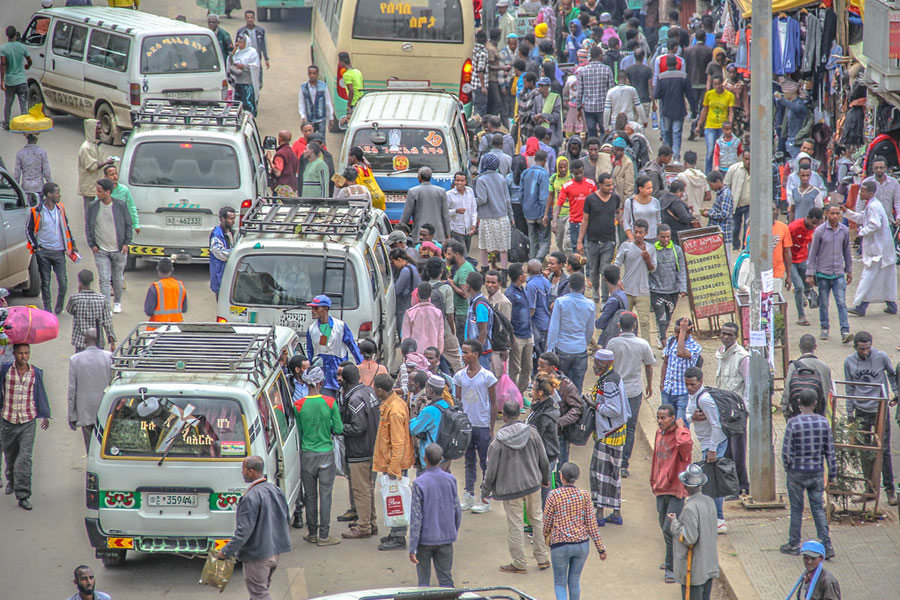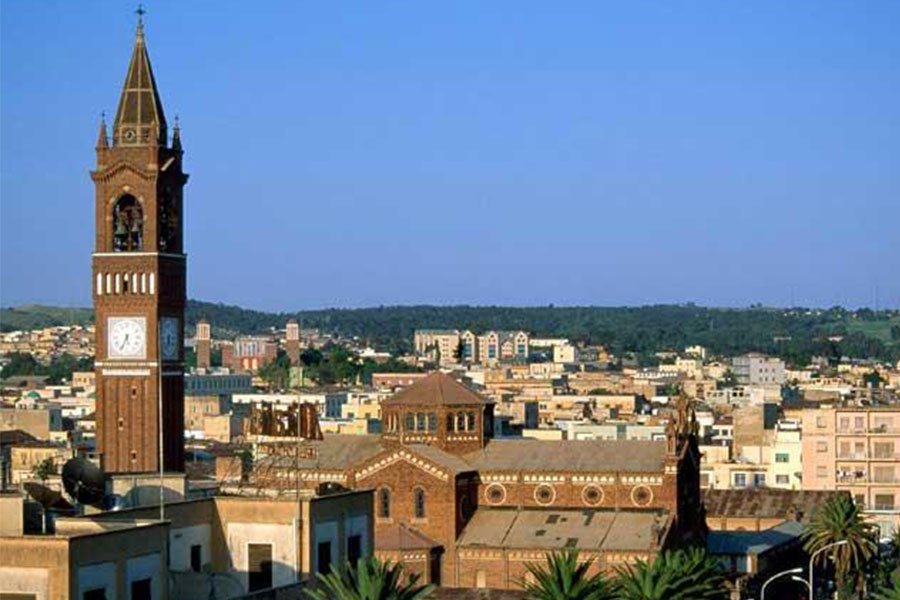
Viewpoints | Sep 08,2024
Oct 9 , 2021
By Christian Tesfaye
There has been much to be said about the growth prospects of Ethiopia, like any developing African nation, the challenges going forward and the prevailing obstacles of today. Much of this debate revolves around the impacts of COVID-19 and the civil war, and the previous trends that have held growth back, such as the crowding out of the private sector, corruption, poor infrastructure and lack of skilled human power.
One crucial element is underrepresented – population growth. By some estimates, the country could support about 200 million people by 2050, almost double that of today’s. This is a lot of people that would either break or make any growth prospect of the nation.
Let us start with a worst-case scenario, but better than what we have now. Imagine an alternate universe where there was no COVID-19, and the political elite navigated the political challenges of the past five years with such care that a civil war never broke out. Like many other of its African peers, Ethiopia would still be faced with a gigantic challenge, ensuring that the millions of people born would be fed and millions of people who join the labour market would get jobs.
This would have been a complex task to carry out because of the structure of the economy. Some 60pc of working adults are engaged in the agricultural sector. But land per household is being parcelled into fractions with each generation to a point where it will soon no longer support a family. This means that millions of youth will be locked out of the agriculture sector whether they like it or not.
The pressure then hits other parts of the economy. Since the service sector usually requires a certain level of skills not everybody from rural areas would have, and because this sector cannot provide enough jobs at this level of the economy, the industry sector would have to take in this dislocated labour.
This will be fine if there is a manufacturing sector to speak of or if the construction industry is sustainable. There could be so much construction taking place before it can start to pay off, and a country will not fall into unsustainable levels of debt. We are seeing the consequences of this in Ethiopia at the moment. And with the manufacturing sector on its knees, as it never really took off, the youth who would be dislocated from the agricultural sector because they are running out of arable land and displaced from rural areas because there are no more jobs, would be at best merely a burden on the economy or at worst fodder for populists and political entrepreneurs (usually not in a good way).
Now imagine yet another alternate universe where a structural economic transformation was achieved – as yields in the agricultural sector improve, the manufacturing one takes off. Then this exploding population growth would be one of the country’s greatest selling points. This is not just a population that contributes to economic growth, and thus social welfare. Because, on this version of the universe, the youth have adequate job opportunities, they have some disposable income to spend and create a thriving domestic market that sustains itself.
The second scenario requires several things on several fronts to go right. The political situation needs to improve, for starters. It is useless to go for years of peace if it is always ultimately back to war. It would be taking a step forward but two steps backwards. The net result is still a negative.
Then there needs to be attention given to the agricultural sector. Land is finite. Thus, there is no way around it but to invest and adopt improved farming practices to improve yields. It is nearly impossible for a country to develop unless it manages to realise food security first.
With political stability and a path towards food security charted, ensuring that the population explosion is converted into the fruit for prosperity that it can become will be possible.
PUBLISHED ON
Oct 09,2021 [ VOL
22 , NO
1119]


Viewpoints | Sep 08,2024

Editorial | Dec 05,2018

Commentaries | Oct 31,2020

Editorial | Jul 03,2021

Viewpoints | Sep 27,2025

Agenda | Jun 15,2019

Films Review | Nov 30,2019

View From Arada | Nov 26,2022

View From Arada | Dec 10,2018

Viewpoints | Jul 03,2021

Photo Gallery | 175868 Views | May 06,2019

Photo Gallery | 166085 Views | Apr 26,2019

Photo Gallery | 156492 Views | Oct 06,2021

My Opinion | 136849 Views | Aug 14,2021

Dec 22 , 2024 . By TIZITA SHEWAFERAW
Charged with transforming colossal state-owned enterprises into modern and competitiv...

Aug 18 , 2024 . By AKSAH ITALO
Although predictable Yonas Zerihun's job in the ride-hailing service is not immune to...

Jul 28 , 2024 . By TIZITA SHEWAFERAW
Unhabitual, perhaps too many, Samuel Gebreyohannes, 38, used to occasionally enjoy a couple of beers at breakfast. However, he recently swit...

Jul 13 , 2024 . By AKSAH ITALO
Investors who rely on tractors, trucks, and field vehicles for commuting, transporting commodities, and f...

Oct 18 , 2025
The political establishment, notably the ruling party and its top brass, has become p...

Oct 11 , 2025
Ladislas Farago, a roving Associated Press (AP) correspondent, arrived in Ethiopia in...

Oct 4 , 2025
Eyob Tekalegn (PhD) had been in the Governor's chair for only weeks when, on Septembe...

Sep 27 , 2025
Four years into an experiment with “shock therapy” in education, the national moo...

Oct 18 , 2025 . By NAHOM AYELE
In a sweeping reform that upends nearly a decade of uniform health insurance contribu...

A bill that could transform the nutritional state sits in a limbo, even as the countr...

Oct 18 , 2025 . By SURAFEL MULUGETA
A long-planned directive to curb carbon emissions from fossil-fuel-powered vehicles h...

Oct 18 , 2025 . By BEZAWIT HULUAGER
Transaction advisors working with companies that hold over a quarter of a billion Bir...